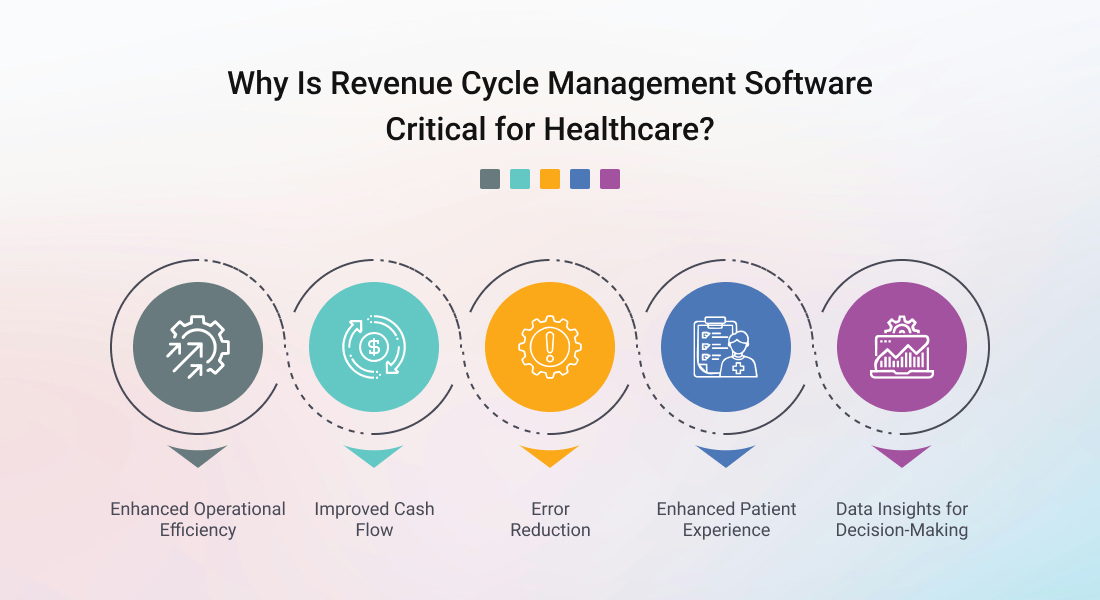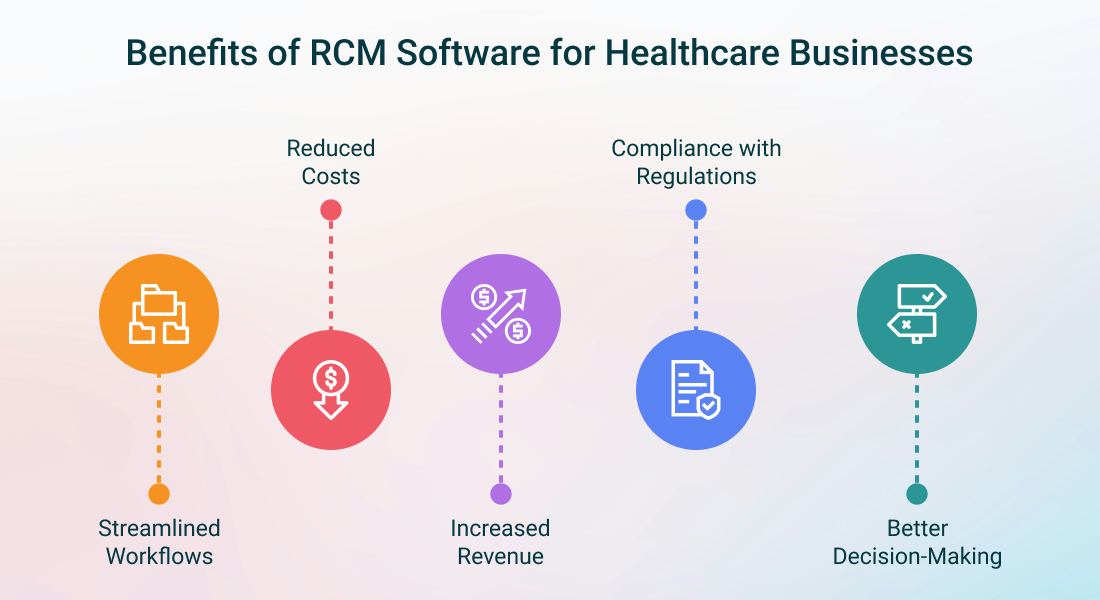Digital Transformation Consulting: Cost, Strategy,...
October 13, 2025

In the evolving healthcare landscape, managing finances efficiently is crucial for sustainable growth. Revenue Cycle Management Software (RCM) has become a transformative tool, enabling healthcare providers to streamline billing, track payments, and optimize cash flow. According to a recent report by GlobeNewswire, the global RCM market is projected to grow from $49.6 billion in 2023 to $84 billion by 2028, showcasing its increasing importance across industries. With features like automated invoicing, real-time payment tracking, and claims management, RCM software is reshaping healthcare operations globally.
Revenue Cycle Management Software is a comprehensive solution designed to manage the entire financial lifecycle of healthcare organizations. From patient registration and appointment scheduling to billing, claim submissions, and payment processing, RCM software simplifies complex workflows while improving accuracy and efficiency.
Know More: Warehouse Management Software: Cost Breakdown

RCM software automates manual tasks such as billing, payment tracking, and appointment scheduling. This reduces administrative burdens and allows staff to focus on patient care, resulting in improved operational efficiency.
With real-time payment tracking and faster claim submissions, RCM software ensures steady cash flow. Automated reminders and alerts minimize payment delays, enabling healthcare providers to maintain a healthy revenue cycle.
Manual processes are prone to errors, especially in billing and claim management. RCM software minimizes these errors by automating data entry, ensuring accuracy in financial transactions.
RCM software simplifies billing for patients by offering multiple payment options and transparent billing processes. This leads to greater satisfaction and builds long-term trust with patients.
The software provides valuable insights into key financial metrics, helping organizations identify areas of improvement and implement cost-saving strategies.
Developing a robust RCM solution requires a well-structured approach. Here’s a step-by-step guide:
Identify the core functionalities your software must include, such as billing, claim management, and reporting. Conduct market research to understand user needs and existing solutions.
Select technologies that ensure scalability and security. Common choices include:
Focus on creating a user-friendly interface with seamless navigation. The development process involves:
Conduct rigorous testing to eliminate bugs and ensure software reliability. Once approved, deploy the software on cloud platforms for accessibility.
Regular updates, maintenance, and new feature integrations are crucial for keeping the software relevant and efficient.
The cost of developing RCM software varies depending on factors like complexity, features, and the development team’s expertise. Below is an estimate:
| Type | Cost Range | Time Frame |
|---|---|---|
| Basic Software | $8,000 – $15,000 | 3 – 5 months |
| Medium Complexity | $15,000 – $30,000 | 5 – 8 months |
| High Complexity | $30,000+ | 10+ months |

1. Streamlined Workflows
Automates repetitive tasks, saving time and resources.
2. Reduced Costs
Minimizes errors and operational inefficiencies, cutting unnecessary expenses.
3. Increased Revenue
Enhances cash flow and ensures faster payments through automated systems.
4. Compliance with Regulations
Keeps organizations compliant with healthcare standards, reducing legal risks.
5. Better Decision-Making
Real-time insights enable data-driven strategies for financial management.
Learn more: Take Control of Your Finances with Cash Management Software
Transforming your healthcare finances starts with the right tools. At Inexture Solutions we specialize in developing tailor-made Revenue Cycle Management Software that aligns with your organizational needs. From improving cash flow to enhancing patient satisfaction, our solutions are designed to empower your business.
Let us help you optimize your financial processes and stay ahead in a competitive market. Contact us today for a free consultation!